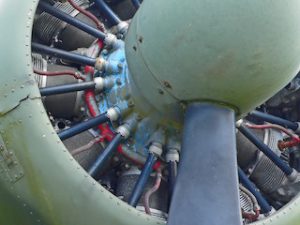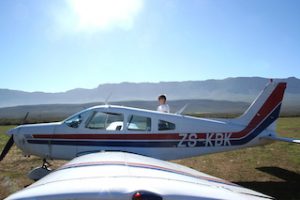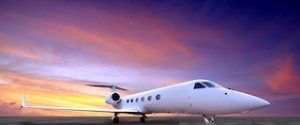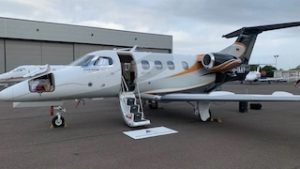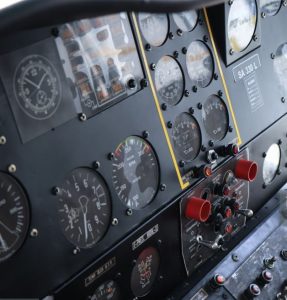The Convenience and Cost-Effectiveness of Pilot Training In Kenya
 The aviation industry is one of the most demanding fields, requiring extensive training and ongoing education for aspiring pilots. For Kenyans looking to pursue a career in aviation, one of the significant hurdles has traditionally been the high cost and inconvenience of traveling abroad for pilot simulator training. However, the rise of advanced training facilities in Nairobi is changing this narrative. This article explores the convenience and cost-effectiveness of undertaking pilot simulator training in Nairobi, highlighting the financial savings, quality of training, and the added benefits of staying close to home.
The aviation industry is one of the most demanding fields, requiring extensive training and ongoing education for aspiring pilots. For Kenyans looking to pursue a career in aviation, one of the significant hurdles has traditionally been the high cost and inconvenience of traveling abroad for pilot simulator training. However, the rise of advanced training facilities in Nairobi is changing this narrative. This article explores the convenience and cost-effectiveness of undertaking pilot simulator training in Nairobi, highlighting the financial savings, quality of training, and the added benefits of staying close to home.
Aviation training sector in Nairobi
Nairobi, the bustling capital of Kenya, has steadily positioned itself as a hub for aviation training in Africa. The city boasts several state-of-the-art flight simulator training centers, which are increasingly attracting local and international students. These centres are equipped with the latest technology and staffed by experienced instructors, ensuring that trainees receive world-class education without the need to leave the country.
Financial savings
- Reduced travel expenses: One of the most significant cost benefits of undertaking pilot simulator training in Nairobi is the elimination of international travel expenses. Traveling overseas for training often involves high costs for airfare, visas, and travel insurance. By choosing a local training centre, Kenyan students can avoid these substantial expenses.
- Lower accommodation costs: Accommodation costs can be a major financial burden for students studying abroad. In cities like London, New York, or Dubai, accommodation can be prohibitively expensive. In contrast, Nairobi offers a range of affordable housing options, from budget-friendly hostels to more luxurious hotels, making it easier for students to find suitable accommodations within their budget. Additionally, local students have the option to live at home, eliminating accommodation costs altogether.
- Cost-effective living expenses: Living expenses, including food, transportation, and utilities, are generally lower in Nairobi compared to major cities in Europe or North America. The cost of living in Nairobi is significantly more affordable, allowing students to manage their finances more efficiently. This cost advantage extends to everyday essentials and leisure activities, making the overall training experience more financially manageable.
Convenience
- Proximity to home: Undertaking pilot simulator training in Nairobi offers the undeniable convenience of staying close to home. This proximity allows students to maintain their personal and social connections, providing a support network that can be invaluable during the intensive training period. Being near family and friends can alleviate the stress and isolation often associated with studying abroad, contributing to better mental health and overall well-being.
- Familiar environment: Training in a familiar environment can enhance the learning experience. Students in Nairobi are likely already accustomed to the local culture, climate, and lifestyle, which means they can focus more on their studies rather than adjusting to a new country. This familiarity extends to language, as the primary languages in Kenya, English and Swahili, are also used in training programs, eliminating language barriers that might be encountered abroad.
- Ease of access: Nairobi is well-connected by a robust transport network, making it easy for students to commute to and from training centres. The city’s infrastructure supports efficient travel within the city, whether by public transportation or personal vehicles. This ease of access reduces the time and stress associated with daily commuting, allowing students to dedicate more time to their studies and rest.
Quality of training
- State-of-the-art facilities: Nairobi’s flight simulator training centres are equipped with cutting-edge technology that rivals international standards. These facilities include full-motion simulators, advanced avionics systems, and comprehensive training modules that cover a wide range of aircraft types. The presence of such high-quality training equipment ensures that students receive a rigorous and thorough education.
- Experienced instructors: The training centres in Nairobi employ experienced instructors who bring a wealth of knowledge and expertise to the classroom. Many of these instructors have extensive backgrounds in commercial aviation and have undergone specialized training themselves. Their real-world experience and teaching acumen provide students with valuable insights and practical skills that are essential for a successful aviation career.
- Accreditation and recognition: Many of Nairobi’s aviation training institutions are accredited by international aviation bodies, ensuring that the training meets global standards. This accreditation means that certifications obtained in Nairobi are recognised and respected worldwide, allowing graduates to pursue careers with international airlines without the need for additional training.
Additional benefits
- Networking opportunities: Training in Nairobi provides students with ample opportunities to network with industry professionals and peers. These connections can be instrumental in securing job placements and advancing one’s career in aviation. Local training centres often have strong ties with airlines and aviation companies in Kenya and the wider region, facilitating internships and job placements for their graduates.
- Contribution to local economy: Choosing to train locally supports the Kenyan economy by keeping funds within the country. This economic contribution can help further develop the aviation sector in Kenya, leading to more job opportunities and improved infrastructure. As more students opt for local training, the demand for high-quality education will drive continuous improvements in training facilities and resources.
- Cultural and social enrichment: Staying in Nairobi for training allows students to remain engaged with their cultural heritage and social activities. They can participate in local events, festivals, and community gatherings, enriching their personal lives while pursuing their professional goals. This balance between personal and professional life is crucial for maintaining a well-rounded and fulfilling lifestyle.
Practical considerations
- Research and planning: Prospective students should conduct thorough research to identify the best training centers in Nairobi. Factors to consider include the quality of facilities, instructor qualifications, course content, and accreditation status. Planning ahead and choosing the right institution can make a significant difference in the training experience and outcomes.
- Financial management: While training locally is more cost-effective, it still requires careful financial planning. Students should budget for tuition fees, living expenses, and any additional costs associated with their training. Exploring scholarships, grants, and financial aid options can also help alleviate the financial burden.
- Balancing training and personal life: Undertaking intensive pilot simulator training requires a significant time commitment and dedication. Students should find a balance between their training schedule and personal life to avoid burnout. This balance includes maintaining a healthy lifestyle, staying connected with family and friends, and finding time for relaxation and hobbies.
Pilot training for Kenyans
The convenience and cost-effectiveness of pilot simulator training in Nairobi offer a compelling alternative to studying abroad. By choosing to train locally, Kenyan students can significantly reduce their expenses, enjoy the support of a familiar environment, and receive high-quality education from experienced instructors. Additionally, staying in Nairobi allows students to maintain their personal connections, contribute to the local economy, and enrich their cultural and social lives.
As Nairobi continues to develop as a hub for aviation training, the opportunities for aspiring pilots are expanding. The city’s advanced training facilities, combined with the cost and convenience benefits, make it an ideal destination for those pursuing a career in aviation. By making an informed decision and planning their training journey carefully, students can achieve their professional goals while enjoying the many advantages of staying close to home.

